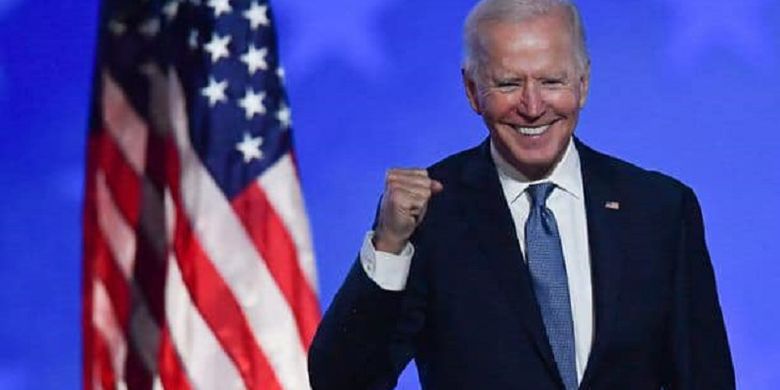WASHINGTON DC, KOMPAS.com – President-elect AS, Joe Biden has issued a discourse to determine its position against Saudi Arabia and war of Yaman.
In the last 2 years, Biden have said that there is “very little social redemption value” that the government of Saudi Arabia has exercised, compared to the actions that have killed “children … and innocent people” in Yemen, which is a “pariah”.
“Under the Biden-Harris administration, we will reassess our relationship with the (Saudi) kingdom, end US support for Saudi Arabia’s war in Yemen, and ensure America does not sell its weapons or buy its oil,” Biden said in October.
This strong statement is also widely echoed by Democratic party. Only in the past week has US Representative Ro Khanna tweeted that Democrats will “stop funding the Saudi war in Yemen”.
Launch Al Jazeera on Wednesday (11/11/2020), the Democrat’s reasons for punishing Saudi Arabia are clear, that the continuing war in Yemen is inhuman.
The killing of Saudi dissident Jamal Khashoggi at the Saudi consulate in Istanbul in October 2018 was one of his considerations.
Also read: US Foreign Ministry Allegedly Blocking Messages from World Leaders for Joe Biden
However during the reign Trump, The US supports openly throughout its dealings with Saudi Arabia.
As well as shared antipathy for Iran, Saudi Arabia was the goal of the President’s first foreign visit Donald Trump.
Trump brags that he is protecting Crown Prince Mohammed bin Salman (MBS) after the Khashoggi murder case broke out.
On the other hand, many Democrats are calling for MBS to be held to account.
However, there is often a difference between the promises made in the campaign and the reality during the current administration. Historically, the leader of the most powerful country in the world has always tried to make friends with Saudi Arabia.
Thus, analysts say that it is likely that Biden will adopt a balanced approach to Saudi Arabia.
While Trump is different, some in the Democrats may not want to make a complete refusal to get on with the royal state.
Also read: Joe Biden Shows His Longing for Being the Chief of White House Staff
“The Biden administration will end the perception that the Saudi leadership enjoys almost unconditional support from the White House … with a view to limiting it back around goals that serve common interests,” said Kristian Ulrichsen, a fellow for the Middle East at Rice University.
“This includes a way to release Saudi Arabia from Yemen,” he added.
Ulrichsen said this new policy towards Saudi Arabia would extend to arms sales.
“Given that the advisers around Biden have maintained a commitment to helping defend Saudi Arabia from regional adversaries, I imagine there will be a lot more focus on ensuring that any arms sales will be defensive rather than offensive,” Ulrichsen said.
A quarter of US arms sales in the 5 years between 2014 and 2019 were distributed to Saudi Arabia.
According to the Stockholm International Peace Research Institute, there was a 7.4 percent increase in sales in 2010-2014.
Saudi Arabia began its military engagement in the war in Yemen in March 2015.
Also read: Similar to Indonesia, this is Joe Biden’s challenge if he becomes US President
The role of the US in the Yemeni war
In addition to billions of dollars in arms sales, the US provides logistical and intelligence support for the Saudi war effort in Yemen.
In April 2019, a bipartisan resolution to end America’s involvement in the war was passed by both houses of Congress, but Trump vetoed the resolution.
At the time, the president defended his actions, saying peace in Yemen could only come through a “negotiated settlement”.
The question now is whether Biden will have better luck coming up with a solution.
“I think the Biden administration can have a very positive impact in ending the war in Yemen,” said Gregory Johnsen, a former member of the UN Security Council’s Panel of Experts on Yemen.
“Indeed, the US may be the only country, which, if it has the intention, can put enough diplomatic pressure on Saudi Arabia to end the war in Yemen,” Johnsen continued.
However, ending Saudi involvement in Yemen does not mean the broader conflict in the country will end.
“Ending the Saudi-led war in Yemen is the first step, but the next and much more difficult step is ending Yemen’s civil war and reuniting the country,” said Johnsen.
Also read: Trump and Republicans Reject the Transition to Biden
Apart from Saudi Arabia and the United Arab Emirates, the war in Yemen involves a myriad of warring parties, including the internationally recognized government, Iran-allied Houthi rebels and the separatist Southern Transitional Council.
Fighting in the country has escalated over the past few months with the Houthis advancing on Marib, the Yemeni government’s stronghold in the country’s north, and home to a large population of internally displaced persons.
If the Biden government succeeds in pushing peace talks, it may be because the Houthis are in control of the battlefield.
Moreover, it does not mean that the outcome of a negotiated agreement will end war on the ground.
“We should not exaggerate what the Biden government can do in connection with the Yemeni war,” Nadwa Dawsari, a non-resident scholar at the Middle East Institute, told Al Jazeera.
“The political solution in the current situation will further complicate the Yemeni war and the game is in the hands of the Houthi and Iran,” Dawsari continued.
“Trump gave the Saudis and Emiratis of freedom in Yemen. I hope Biden will not do the opposite and give Iran freedom in Yemen,” he concluded.
Also read: Poll: 80 Percent of US People Agree Joe Biden Wins Presidential Election
– .


